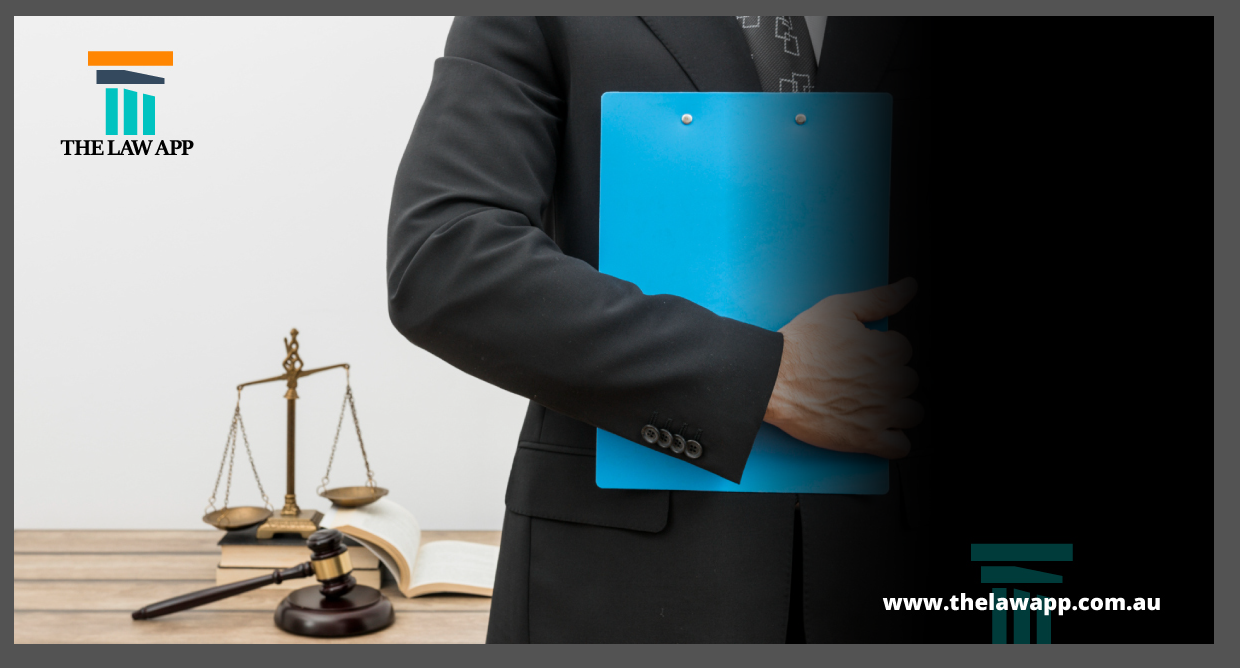
Hire a Lawyer: In the vast legal landscape of Australia, hiring a lawyer is a crucial step toward navigating complex matters and safeguarding one’s rights. As the legal system evolves, individuals often find themselves in situations requiring professional guidance, making the process of hiring a lawyer paramount. This blog explores the significance of this decision and outlines key steps in the hiring journey.
Australia’s legal framework is intricate, with laws varying across states and territories. Whether facing a legal dispute, family matter, or business issue, having a knowledgeable advocate can make all the difference. Lawyers not only interpret the law but also provide invaluable insights, ensuring that individuals are well-informed and protected within the bounds of the legal system.
 The process of hiring a lawyer involves careful consideration and thorough research. From understanding the nature of your legal needs to evaluating a lawyer’s credentials and experience, each step contributes to making an informed decision. This section will delve into the critical elements of this process, providing a roadmap for those seeking legal representation.
The process of hiring a lawyer involves careful consideration and thorough research. From understanding the nature of your legal needs to evaluating a lawyer’s credentials and experience, each step contributes to making an informed decision. This section will delve into the critical elements of this process, providing a roadmap for those seeking legal representation.
Emphasising the importance of selecting the right lawyer is paramount. Legal matters are diverse, and each case requires specific expertise. This section will underscore the need for compatibility between the lawyer’s specialisation and the client’s unique needs, ensuring a harmonious and effective attorney-client relationship.
Embarking on the journey to hire a lawyer in Australia is a proactive step toward securing a favorable outcome in legal matters. By understanding the nuances of this process, individuals can confidently navigate the legal terrain with the support of a qualified and dedicated legal professional.
When it comes to navigating the Australian legal system, a crucial initial step in the process of hiring a lawyer is gaining a clear understanding of your specific legal needs. Australia’s legal landscape is diverse, encompassing various areas such as criminal law, civil disputes, family matters, and more. Here’s a closer look at how you can assess the nature of your legal issue.
In Australia, legal issues fall into distinct categories, each governed by specific laws and regulations. Criminal law deals with offenses against the state, civil law pertains to disputes between individuals or entities, while family law addresses matters like divorce and child custody. Understanding the nature of your legal concern is the first step in the hiring process.
Once you’ve identified the broad category, it’s crucial to pinpoint the specific expertise required for your case. For instance, within family law, you may need a lawyer with experience in divorce proceedings, property settlements, or child custody matters. Recognising the nuances of your situation allows you to seek out a lawyer with the right skill set to handle your unique case effectively.
By thoroughly assessing the nature of your legal issue and identifying the specific expertise required, you lay a solid foundation for the subsequent steps in the process of hiring a lawyer in Australia. This proactive approach ensures that you align yourself with a legal professional equipped with the knowledge and experience to navigate your specific legal terrain.
Embarking on the journey to hire a lawyer in Australia involves comprehensive research to identify legal professionals who align with your specific needs. Here’s a closer look at effective strategies for researching potential lawyers.
In the digital age, search engines become powerful allies in the quest for legal representation. By strategically using the focus keyword “Hire a Lawyer” individuals can streamline their search, accessing a pool of potential candidates tailored to their needs. Consider specifying your location or legal issue for more targeted results.
Legal directories and official websites are treasure troves of information about lawyers and law firms. Explore these platforms to gather insights into the background, expertise, and contact details of potential lawyers. Additionally, websites often feature valuable resources such as articles, blog posts, and case studies that can provide a deeper understanding of a lawyer’s approach and capabilities.
Word of mouth remains a potent tool in the legal landscape. Seek recommendations from friends, family, and colleagues who may have had positive experiences with lawyers. Personal referrals often come with insights into the lawyer’s communication style, responsiveness, and overall effectiveness in handling legal matters.
Delve into testimonials and reviews on lawyer websites to gauge client satisfaction and success stories. Authentic feedback from previous clients offers valuable perspectives on a lawyer’s professionalism, reliability, and ability to achieve favorable outcomes.
By combining online research methods and personal recommendations, individuals in Australia can compile a list of potential lawyers, setting the stage for the next crucial steps in the hiring process. This meticulous approach ensures that you’re well-informed and equipped to make a confident decision when selecting legal representation.
As you navigate the process to hire a lawyer in Australia, it’s imperative to scrutinise potential candidates for specific qualities that indicate their competence and suitability for your case. Here are key attributes to consider:
Begin by examining the lawyer’s educational journey and legal qualifications. In Australia, reputable lawyers typically graduate from accredited law schools. Check for degrees and certifications that align with the legal expertise you require. A strong educational foundation is indicative of a lawyer’s commitment to excellence.
Verify whether the lawyer is a member of professional associations and bar associations. Membership in these organisations underscores a commitment to ethical standards and ongoing professional development. For example, in Australia, the Law Society or the Bar Association memberships demonstrate a lawyer’s dedication to upholding the highest standards in the legal profession.
Scrutinise the lawyer’s track record in handling cases similar to yours. Successful outcomes and positive resolutions in past cases are indicative of a lawyer’s ability to navigate complexities effectively. Look for evidence of courtroom victories, settlements, or favorable judgments that align with your legal needs.
Specialisation is key. Confirm that the lawyer possesses expertise in the specific field of law relevant to your case. Whether it’s family law, criminal defence, or corporate law, a lawyer with focused expertise is better equipped to navigate intricacies and nuances unique to your legal situation.
 By prioritising these qualities, individuals seeking legal representation in Australia can make informed decisions when selecting a lawyer. The right combination of professional credentials, experience, and specialisation ensures that your chosen lawyer is well-equipped to advocate for your rights and provide effective legal counsel.
By prioritising these qualities, individuals seeking legal representation in Australia can make informed decisions when selecting a lawyer. The right combination of professional credentials, experience, and specialisation ensures that your chosen lawyer is well-equipped to advocate for your rights and provide effective legal counsel.
Embarking on the journey to hire a lawyer in Australia involves a pivotal phase – the initial consultation. This meeting serves as a crucial opportunity to assess the lawyer’s suitability for your needs and gather essential information about your case.
Begin by scheduling a consultation with the prospective lawyer. Many legal professionals offer initial consultations at no cost. Prepare for this meeting by organising relevant documents, outlining key details about your case, and formulating questions to ensure a productive discussion.
Inquire about the lawyer’s assessment of your case. Ask for potential strategies they might employ to address your legal concerns. Understanding their approach and insights into your specific situation provides clarity on how they intend to navigate the complexities of your case.
Openly discuss legal fees and billing arrangements during the consultation. Gain a clear understanding of the lawyer’s fee structure – whether it’s hourly rates, flat fees, or contingency fees for specific cases. Transparency about costs upfront ensures that there are no surprises down the road, allowing you to budget effectively for legal representation.
The initial consultation is a two-way street – not only does it provide an opportunity for the lawyer to assess your case, but it also allows you to evaluate whether the lawyer is the right fit for your needs. Clear communication during this phase sets the foundation for a transparent and collaborative attorney-client relationship. As you navigate this phase of the hiring process, remember that finding the right lawyer is a crucial step toward achieving a favorable outcome in your legal matter.
As you progress in your quest to hire a lawyer in Australia, a critical aspect that demands careful consideration is the evaluation of costs and the establishment of a realistic budget for legal representation.
Lawyers typically charge clients using either hourly rates or flat fees. Hourly rates involve billing clients based on the actual time spent on their case. On the other hand, flat fees are predetermined amounts for specific legal services. Understanding these structures helps you gauge the potential costs associated with your case and choose a fee arrangement that aligns with your preferences and financial situation.
In certain situations, lawyers may work on a contingency fee basis, especially in personal injury or compensation cases. In this arrangement, the lawyer only receives payment if they secure a favorable outcome for the client. It’s essential to clarify the terms of a contingency fee arrangement during your initial consultation to avoid any misunderstandings later on.
Once you have a clear understanding of the fee structures, it’s time to establish a realistic budget for legal representation. Consider the potential costs associated with your case, taking into account legal fees, court fees, and any additional expenses. Having a well-defined budget allows you to manage your finances effectively and ensures that you are financially prepared for the duration of your legal proceedings.
Navigating the financial aspects of hiring a lawyer in Australia requires a proactive and informed approach. By understanding different fee structures and establishing a realistic budget, you set the stage for a transparent financial arrangement with your chosen legal representative. This foresight not only promotes a smooth attorney-client relationship but also allows you to focus on the legal matter at hand without undue financial stress.
In the process of hiring a lawyer in Australia, due diligence extends beyond the initial research phase. Verifying a lawyer’s credentials and seeking feedback from references or past clients is a crucial step to ensure you’re making an informed decision.
Before finalising your decision, take the time to thoroughly verify the lawyer’s credentials. Confirm their educational background, legal qualifications, and current standing with relevant professional associations such as the Law Society or Bar Association. This step provides assurance that the lawyer possesses the necessary qualifications and operates within the ethical standards of the legal profession in Australia.
Reach out to references or past clients to gain firsthand insights into the lawyer’s performance and client satisfaction. In Australia, legal professionals often provide references upon request. Ask about the lawyer’s communication style, responsiveness, and effectiveness in handling legal matters. Personal experiences from individuals who have been in similar legal situations can provide valuable perspectives on what it’s like to work with the lawyer.
 Checking references and credentials is akin to seeking testimonials for a service. It adds a layer of transparency to your decision-making process, allowing you to build trust in the capabilities and professionalism of the lawyer you’re considering. By investing time in this thorough evaluation, you position yourself to make a well-informed choice and ensure that your legal representation aligns seamlessly with your expectations and needs.
Checking references and credentials is akin to seeking testimonials for a service. It adds a layer of transparency to your decision-making process, allowing you to build trust in the capabilities and professionalism of the lawyer you’re considering. By investing time in this thorough evaluation, you position yourself to make a well-informed choice and ensure that your legal representation aligns seamlessly with your expectations and needs.
As you approach the final stages of the journey to hire a lawyer in Australia, there are critical steps to ensure a smooth and effective collaboration. The following aspects are instrumental in finalising the hiring process:
Once you’ve selected a lawyer, the next step is to review and sign the retainer agreement. This document outlines the terms of your legal engagement, including the scope of services, fee structure, and any other relevant details. Carefully read through the agreement, and don’t hesitate to seek clarification on any points that may require further explanation. Clear communication at this stage sets the foundation for a transparent and productive attorney-client relationship.
Effective communication is paramount throughout the legal process. Discuss with your lawyer the preferred modes of communication and the frequency of case updates. Establishing expectations at the outset ensures that you stay informed about the progress of your case and enables your lawyer to address any concerns promptly. Whether it’s via email, phone calls, or in-person meetings, aligning on communication preferences fosters a collaborative and responsive working relationship.
Every legal case follows a unique timeline with specific milestones. Clarify the anticipated timeline for your case and identify key milestones along the way. Understanding the expected duration of different phases provides realistic expectations and allows you to plan accordingly. Whether your legal matter involves court appearances, negotiations, or documentation, a clear timeline ensures that both you and your lawyer are on the same page regarding the progression of your case.
By actively engaging in these final steps, you solidify the partnership with your chosen lawyer, laying the groundwork for a successful collaboration. The transparency established during the finalisation of the hiring process contributes to a positive working dynamic and positions you for a more confident and informed experience with your legal representation.
As you navigate the process of hiring a lawyer in Australia, maximising the use of additional tips and resources can enhance your overall legal experience. Here are key considerations:
Explore the wealth of online legal tools and resources available in Australia. Websites of legal organisations, government portals, and reputable legal blogs can provide valuable insights into legal processes, terminology, and frequently asked questions. Familiarising yourself with these resources empowers you to be an informed and proactive participant in your legal journey.
Knowledge is power, especially in legal matters. Stay informed about your legal rights and responsibilities relevant to your case. Legal rights may vary across jurisdictions in Australia, so understanding the specifics ensures that you can actively collaborate with your lawyer in building a strong case. Being aware of your rights also facilitates transparent communication with your legal representation.
Trust your instincts. If you ever find yourself uncertain about the advice or strategy provided by your current lawyer, don’t hesitate to seek a second opinion. Australia’s legal landscape is diverse, and obtaining multiple perspectives can offer clarity and confidence in your decision-making. If, at any point, you feel that your current representation is not meeting your expectations, know that you have the right to explore other options. Open communication about your concerns can lead to resolutions, and if necessary, changing representation ensures that your legal needs are effectively addressed.
By leveraging these additional tips and resources, individuals seeking legal representation in Australia can navigate the complexities of the legal system with greater confidence and awareness. Empowering yourself with knowledge and actively participating in the decision-making process contributes to a more positive and successful legal journey.
From understanding your legal needs and researching potential lawyers to evaluating costs, checking references, and finalising the hiring process, each step plays a crucial role. Assessing the nature of your legal issue, verifying credentials, and establishing a clear line of communication are fundamental elements that collectively contribute to a successful legal partnership.
Thorough research and due diligence are the cornerstones of hiring a lawyer. By diligently exploring online resources, seeking recommendations, and checking references, you equip yourself with the knowledge needed to make an informed decision. Scrutinising a lawyer’s credentials, experience, and specialisation ensures that you align yourself with a legal professional capable of navigating the complexities of your case.
The first step in securing legal assistance can often be the most daunting. However, armed with the insights and guidelines provided in this guide, we encourage you to take that crucial step. Whether you’re facing a family matter, a business dispute, or a criminal charge, the right legal representation is key to safeguarding your rights and achieving a favorable outcome.
In the dynamic legal landscape of Australia, your choice of a lawyer is a decision of profound significance. By actively engaging in the hiring process, staying informed, and utilising available resources, you set the stage for a collaborative and successful legal journey. Take that first step with confidence, knowing that you have the tools to make a well-informed decision and secure the legal assistance you need.
 In the dynamic landscape of Australian law, finding the right legal representation can be both crucial and daunting. Enter The Law App – a revolutionary online marketplace designed to simplify the process of hiring a lawyer, making it accessible and affordable for all.
In the dynamic landscape of Australian law, finding the right legal representation can be both crucial and daunting. Enter The Law App – a revolutionary online marketplace designed to simplify the process of hiring a lawyer, making it accessible and affordable for all.
Navigating through The Law App, clients experience a seamless journey to find lawyers tailored to their specific needs. The platform’s intuitive interface allows users to search for legal professionals based on their field of expertise, ensuring a precise match for their unique legal requirements.
One of the standout features of The Law App is its commitment to affordability. Clients can search for lawyers at a price they can afford, promoting transparency and fairness in legal fees. By eliminating the need for heavy marketing expenses, The Law App empowers lawyers to focus on their craft while connecting with clients directly.
The Law App introduces a groundbreaking approach to hiring a lawyer – fair bidding. Clients can post their legal needs, and lawyers can bid based on their expertise and the scope of the case. This innovative system ensures that both clients and lawyers can reach a mutually agreeable and competitive price, fostering a balanced and transparent marketplace.
In a landscape where legal representation is often perceived as complex and costly, The Law App emerges as a beacon of accessibility and fairness. Whether you’re a client in search of affordable legal services or a lawyer looking to build an online presence without hefty marketing expenses, The Law App is reshaping the way Australians hire lawyers, making legal expertise just a click away.
Understanding the specific legal issues that necessitate legal representation is crucial. Common situations include criminal charges, family law matters, business disputes, and issues requiring specialised legal expertise.
Researching potential lawyers is key. Utilise online resources, legal directories, and recommendations to find lawyers with expertise in your specific legal area, ensuring they are well-suited to handle your case.
Prepare for your initial consultation by asking about the lawyer’s assessment of your case, potential strategies, and the expected legal fees. Clear communication during this phase sets the tone for a successful attorney-client relationship.
Legal fees can vary, and it’s essential to understand the fee structure. Lawyers may charge hourly rates, flat fees, or work on a contingency basis for specific cases. Clarifying the fee arrangement during the initial consultation is crucial.
Verify the lawyer’s educational background, legal qualifications, and memberships in professional associations. In Australia, checking their standing with entities like the Law Society or Bar Association is essential.
Explore online legal tools, resources, and official government portals in Australia. Staying informed about your rights specific to your legal matter enhances your ability to collaborate effectively with your lawyer.
Trust your instincts. If you have doubts about your lawyer’s advice or strategy, seeking a second opinion is acceptable. If, at any point, you feel your current representation is not meeting your expectations, it may be appropriate to explore other options.